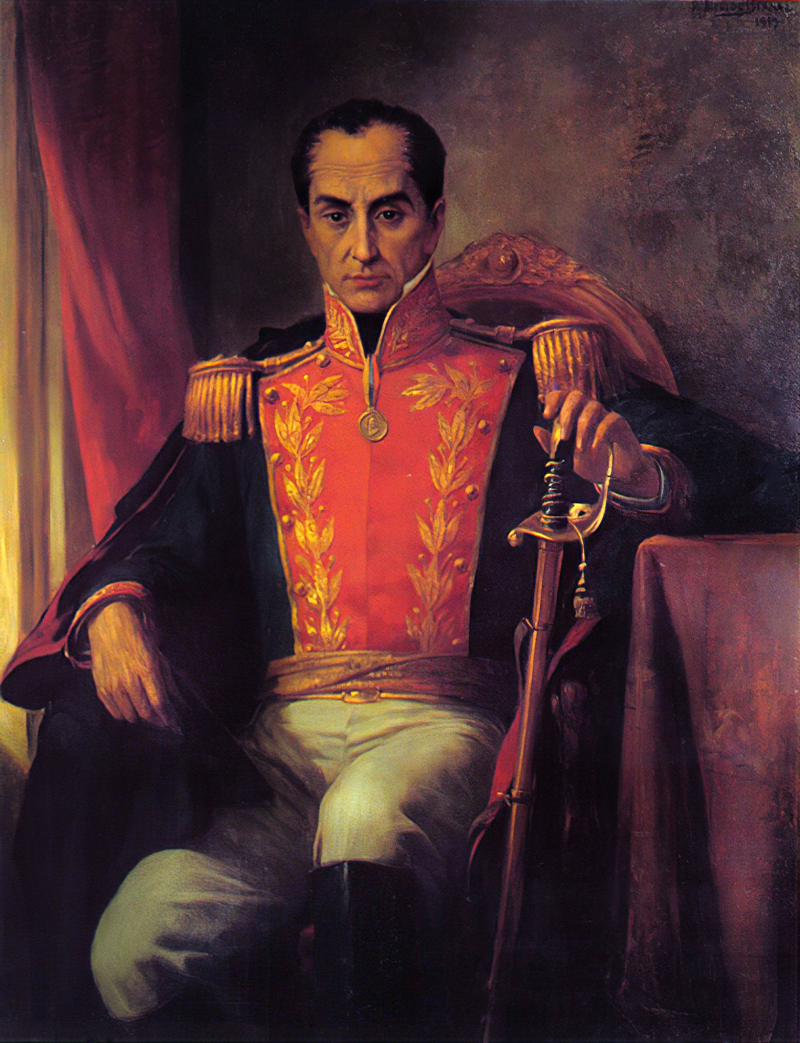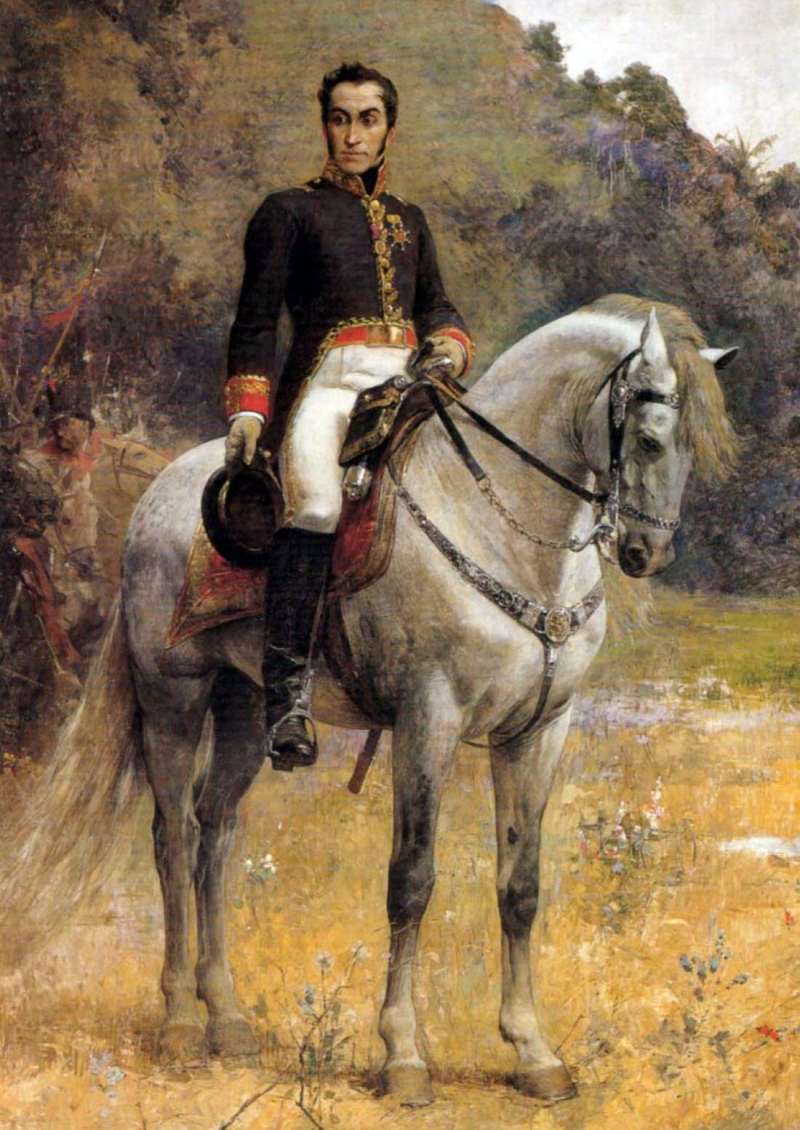Simón Bolívar
Simón José Antonio de la Santísima Trinidad Bolívar y Palacios (24 July 1783 - 17 December 1830) was a Venezuelan military and political leader who led the independence of what are now Colombia, Venezuela, Ecuador, Peru, Panama, and Bolivia from the Spanish Empire. He is also known as El Libertador, or the Liberator of America. He is regarded as one of the most important historical figures in Colombia.
Simón Bolívar was born into a wealthy creole family in Caracas, Captaincy General of Venezuela. He lost both parents before the age of ten and moved around a lot. Bolivar was educated abroad and lived in Spain, as was common for upper-class men at the time. He was introduced to Enlightenment philosophy and met his future wife Mara Teresa Rodrguez del Toro y Alaysa while living in Madrid from 1800 to 1802. Del Toro died of yellow fever after returning to Venezuela in 1803. Bolívar embarked on a grand tour that ended in Rome, where he vowed to end Spanish rule in the Americas. In 1807, Bolívar returned to Venezuela and proposed to other wealthy Creoles that Venezuela gain independence. When Napoleon's Peninsular War weakened Spanish authority in the Americas, Bolívar became a zealous combatant and politician in the Spanish American wars of independence.
In 1810, Bolívar began his military career as a militia officer in the Venezuelan War of Independence, fighting for the first and second Venezuelan republics, as well as the United Provinces of New Granada, against Spanish and more native Royalist forces. Following the capture of New Granada by Spanish forces in 1815, Bolívar was forced into exile in the Republic of Haiti, led by Haitian revolutionary Alexandre Pétion. Bolivar befriended Pétion and received military support from Haiti after promising to abolish slavery in South America. Returning to Venezuela, he established a third republic in 1817 before crossing the Andes to liberate New Granada in 1819. In New Granada in 1819, Venezuela and Panama in 1821, Ecuador in 1822, Peru in 1824, and Bolivia in 1825, Bolivar and his allies defeated the Spanish. Venezuela, New Granada, Ecuador, and Panama merged to form the Republic of Colombia (Gran Colombia), with Bolívar serving as president in Peru and Bolivia.
In his final years, Bolívar became increasingly disillusioned with and estranged from the South American republics due to his centralist ideology. He was removed from office one by one until, following a failed assassination attempt, he resigned the presidency of Colombia and died of tuberculosis in 1830. He is regarded as a national and cultural icon throughout Latin America; the countries of Bolivia and Venezuela, as well as their currencies, bear his name. His legacy is diverse and far-reaching, both within and beyond Latin America, and he has been memorialized all over the world through public art, street names, and popular culture.







